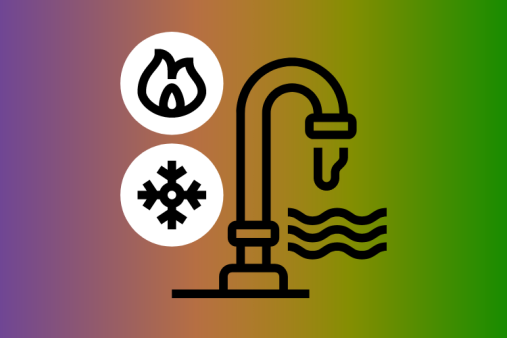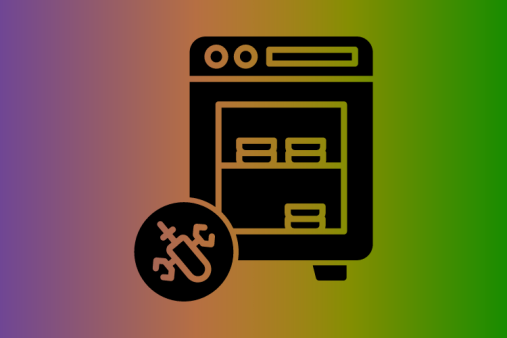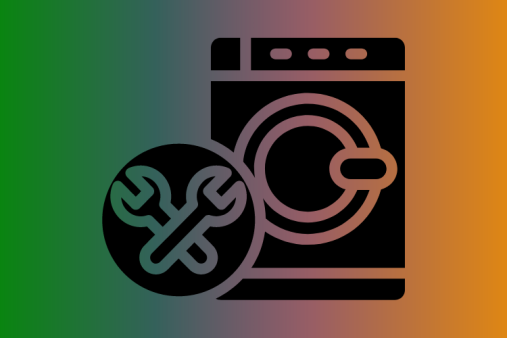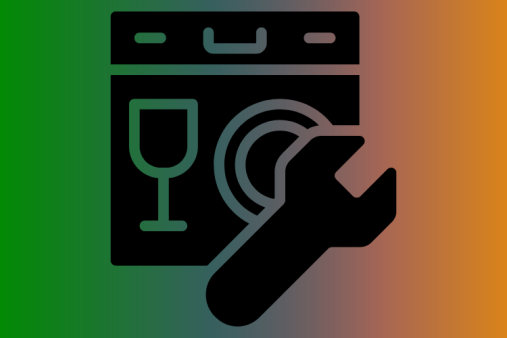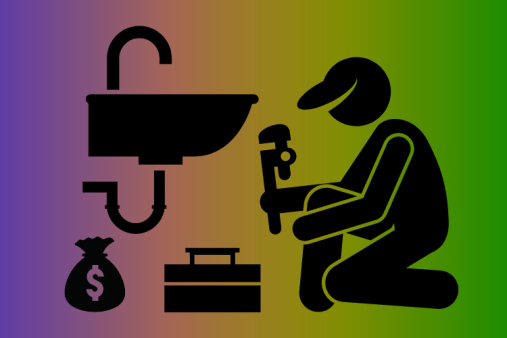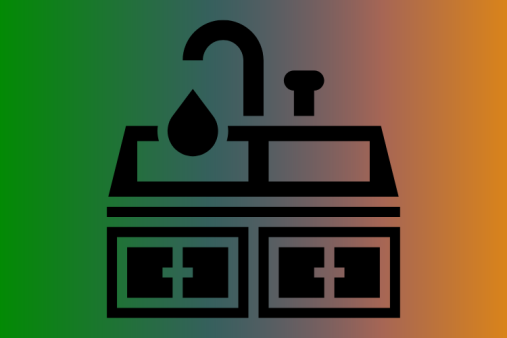Finding a Plumber
Even the most enthusiastic DIY fans often draw the line at plumbing and electrics. There’s just so much that can go wrong when you start working with electricity and water. Whether you’re planning a very minor project such as swapping one set of taps for another, or a much larger project involving replacing an entire bathroom suite, it makes sense to get the professionals to help. Getting the right plumber guarantees a quick and expert job, and takes the stress right out of your hands.
Types of Plumbers
Many plumbers can work on all types of projects involving water. Most will happily change taps in your bathroom, plumb in a new dishwasher or kitchen sink, or take on a much bigger project like installing a whole new bathroom suite. Many plumbers specialise in one specific area of plumbing, or focus on bathroom renovations or kitchen installations. Many plumbers are also gas qualified, which means they can work on domestic heating systems and boilers too. Many will have additional electrician skills, allowing them to deal with electric showers too. Each plumber will have a slightly different set of skills, so it’s important to have a clear idea of what you want to have done in order to find the plumber which matches best to the job.
Choosing a Plumber
There is ample choice of plumbing companies in the UK. So much so, that in many cases the choice can be bewildering. Getting the right plumber doesn’t have to be luck of the draw however. Personal recommendations are always a good starting point. Most of us will have friends or neighbours who have had plumbing work done in the past, and would be happy to recommend the tradespeople they have used. Local social media sites or review sites can also be useful, as long as you are confident that the reviews and recommendations are genuine. Good plumbers are busy people, and if the job you are thinking about having done is fairly small, then you may have to wait several weeks until they are free to do the work. Fees for plumbing work can vary widely depending on the scale of the project. Many plumbers charge a call-out fee to attend to look at the problem, then an hourly rate. You will also have to pay for parts. It’s always best to be clear about what you want done when you call a plumber out to avoid any nasty surprises when they present you with their invoice.
Things to Consider When Choosing a Plumber
The main consideration when hiring a plumber is finding someone who is competent and skilled. There are many trade organisations for plumbers but being a member isn’t compulsory. The only exception to this is for plumbers who are heating engineers working on gas boilers. By law, they must be Gas Safe registered. Before you start calling plumbers and asking them to quote, jot down what needs done. Think about issues such as whether you’re going to source new basins, taps or toilet, or whether you want them to supply. If the job is more unusual, or involves a complete refurbishment of your bathroom or kitchen, ask the plumber if they have done similar work before.
It’s really important to get plumbing right as a bodged job can lead to serious problems in the future. Being clear about the scope of the project and do your research get the right person for the task should ensure that everything runs smoothly.
Bathroom, Kitchen and WC Plumbers
Even the most enthusiastic DIY fans often draw the line at plumbing and electrics. There’s just so much that can go wrong when you start working with electricity and water. Whether you’re planning a very minor project such as swapping one set of taps for another, or a much larger project involving replacing an entire bathroom suite, it makes sense to get the professionals to help. Getting the right plumber guarantees a quick and expert job, and takes the stress right out of your hands.
Choosing a Bathroom, Kitchen and WC Plumber
There is ample choice of plumbing companies in the UK. So much so, that in many cases the choice can be bewildering. Getting the right plumber doesn’t have to be luck of the draw however. Personal recommendations are always a good starting point. Most of us will have friends or neighbours who have had plumbing work done in the past, and would be happy to recommend the tradespeople they have used. Local social media sites or review sites can also be useful, as long as you are confident that the reviews and recommendations are genuine. Good plumbers are busy people, and if the job you are thinking about having done is fairly small, then you may have to wait several weeks until they are free to do the work. Fees for plumbing work can vary widely depending on the scale of the project. Many plumbers charge a call-out fee to attend to look at the problem, then an hourly rate. You will also have to pay for parts. It’s always best to be clear about what you want done when you call a plumber out to avoid any nasty surprises when they present you with their invoice.
Hiring Tips To Find A Local Plumber
Even those of us who are keen DIY enthusiasts often draw the line at plumbing and electrics. Working with water can be messy and tricky, and if you’re not sure what you’re doing, there are dangers and every chance of you flooding the house. There are often legal and safety issues with plumbing and electrics to consider, which makes these particular trades ones you should ideally avoid undertaking on a do-it-yourself basis. Far better to get in the professionals and have any repairs or installation done to a high standard in a safe and legal manner.
Whilst this is not a comprehensive list of tips to help you find your way when hiring plumbers, the items below should help to steer you in the right direction.
Tips for hiring a plumber
- Check feedback and reviews from past customers
- Is there public liability insurance coverage?
- Is there trade association membership?
- Is certification provided?
- Are building regulations required?
- What guarantees are provided?
- Check plumbing qualifications
- Check past projects
- Don’t restrict yourself to locals
Check feedback and reviews from past customers
Always ask plumbing contractors for testimonials, ratings and reviews from past customers of their business. Most good plumbing service providers or trade professionals who carry out domestic or commercial projects will have some reviews somewhere online.
Whilst, at the time of writing, Fakespot didn’t have any option to check for plumbing reviews, entering a website address from many of the well known review sites such as Trip Advisor and Yelp, you can get examples of how prevalent fake reviews actually area. Go online and search for past reviews. Check them out. At the same time be aware that fake reviews do exist online and also no business is perfect. Humans are imperfect too and a disgruntled customer having a bad day might not necessarily give a completely objective review. There are many reasons why reviews may be biased in one direction or another so it is advisable to check more than one source of reviews. Reviews can be biased both positively or negatively. Who amongst us hasn’t asked their friends to like their business page once they first set it up? Human nature is we will seek endorsement from the people we know in the first instance. Therefore, it is important to take bias into consideration. Cross reference across multiple review sites to get a more objective overall view of the service provider. The best way is to ask the contractor providing references for permission to contact referees independently so you can speak to them directly to get an answer ‘straight from the horse’s mouth’. They’ll likely have to also ask their referees for permission for you to contact them before this is possible. If someone you know has used their services also you could ask them directly too.
Is there public liability insurance coverage?
Ask about public liability insurance if your home gets damaged, and about the levels of cover that are available. Check whether the policy is current too.
Is there trade association membership?
What plumbing and heating trades associations are they members of? Many plumbers are members of trade associations, such as The Association of Plumbing and Heating Contractors (APHC). Plumbers who are members of these trade bodies may have insurance as a requirement for their membership or affiliation, giving you peace of mind that if anything goes wrong you will not have to foot the bill. These trade bodies often provide a point of contact should there be a need to complain about the work, as membership for the contractor may require that they deal with complaints and issues in a timely and professional manner.
Please note: there are some excellent tradesmen out there who may not be members of these types of organisations.
Is certification provided?
Find out whether the work will be certified by the trade professional.
Are building regulations required?
Some types of works on the home require building regulations and whilst plumbing generally doesn’t necessarily fit into this type of work, you should always find out just to be on the safe side.
What guarantees are provided?
Find out what guarantees are provided, for how long, and whether these will be provided in writing.
Check building control regarding the latest legislation to be sure contractors have necessary qualifications, certification and accreditations.
Check plumbing qualifications
Remember qualifications and certifications will vary from trade to trade and are project dependant. This is highly relevant for the plumbing trade. There are few jobs which you would not want to hire a qualified plumber for when it comes to work of this type.
Like many other tradespeople, plumbers have different qualifications they can achieve like NVQs. Some qualifications will be more relevant to the job you need doing than others.
For example, having Gas Safe Registration will not count if you need blocked drains clearing but it will be essential if you need a gas fire installing. Don’t necessarily pay for a plumber who is highly qualified for things other than for the job you need doing.
Check past projects
Ask for examples of past plumbing work. Many plumbing contractors have photographs of work and some will be able to show their work on their company website. Check them out. If they have a bathroom showroom, workshop or offices, visit if needed.
Don’t restrict yourself to locals
Good local plumbers travel for the right projects and choosing only from a very local pot of talent could mean you don’t get the right person for your project because of limitations self-imposed due to geography. Bear in mind however that if you do decide to widen the net to include service providers further away then you’ll likely be also covering travel costs you wouldn’t incur if they were nearer to you. These are all factors worth considering. You might find that the cost of the project isn’t any higher regardless of where your tradesperson is travelling from but it’s perhaps worth asking what is included in the price travel wise (if any).
Finding quotes has never been easier on Top Tradespeople. Simply post your job and we will connect you with up to 3 local Plumbers without obligation, and totally free of charge.
Services
Plumbing Repair and Maintenance
Plumbers can do most plumbing jobs from emergency 24-hour plumbing repairs to planned maintenance work on boilers or central heating.
Many plumbers can work on all types of projects involving water. Most will happily change taps in your bathroom, plumb in a new dishwasher or kitchen sink, or take on a much bigger project like installing a whole new bathroom suite. Many plumbers specialise in one specific area of plumbing or focus on bathroom renovations or kitchen installations. Many plumbers are also gas qualified, which means they can work on domestic heating systems and boilers too. Many will have additional electrician skills, allowing them to deal with electric showers too. Each plumber will have a slightly different set of skills, so it’s important to have a clear idea of what you want to have done to find the plumber which matches best to the job.
Hiring a Plumber for Repairs or Maintenance
Getting the right plumber doesn’t have to be luck of the draw, however, personal recommendations are always a good starting point. Most of us will have friends or neighbours who have had plumbing work done in the past and would be happy to recommend the tradespeople they have used. Local social media sites or review sites can also be useful if you are confident that the reviews and recommendations are genuine. Good plumbers are busy people, and if the job you are thinking about having done is fairly small, then you may have to wait several weeks until they are free to do the work.
Like anything, plumbing can be unpredictable with unexpected leaks or breakdowns that can leave you with no hot water or heating. That is why it is always handy to have a plumber to hand so that if you need an emergency repair, you know that the work will be done to a high standard. Also, emergency call out charges can be quite expensive, but if you choose a plumber, you know you will already have an idea on how much it will cost for an emergency plumbing repair.
Finding quotes has never been easier on Top Tradespeople. Simply post your job and we will connect you with up to 3 local Plumbers without obligation, and totally free of charge.
Water Tanks & Immersion Heater
Although combi boilers are a popular choice to supply hot water in UK homes, there are many hot water tanks that can still be found in home today. Used for baths, showers, washing up, really anything that demands hot water, a hot water tank will store large amounts of hot water, so it is available when you need it. The size of the hot water tank you choose depends on how much hot water you use throughout the day. You will find most water tanks and immersion heaters in an airing cupboard or the loft, but unvented water tanks can be placed in several places around the house.
What are the different types of Hot Water Tanks?
Some of the main types of hot water tanks are:
• Vented
• Unvented
• Direct
• Indirect
• Thermal Store
• Solar Tanks
Some of the most popular manufactures of hot water tanks are Worcester, OSO, Valliant, Gledhill, and Bosch.
In unvented water tanks, water is carried through the home through from the pressure supplied from the mains pressure, so a header tank is not required in the loft. Stainless steel unvented water tanks are generally manufactured for higher hot water flow rates, making them perfect for providing higher water pressure in showers.
Usually located in the loft vented cylinders use a header tank instead of mains pressure and rely on gravity to circulate water to your hot water system and heating system. They are usually made of copper.
The water in direct cylinders is heated by an internal element, such as an immersion heater, and then supplied to the intended outlet. Direct cylinders can be vented or unvented.
An indirect water tank is heated by external heat, generally a boiler, which uses an internal coil to transfer the heat from the boiler to the water inside.
What are Solar Heating Hot Water Tanks?
Solar hot water tanks are the latest trend, specially designed for solar heating installations of all kinds. By circulating water and a special glycol liquid through pipes, the heat is transferred to the stored water via an internal coil. Sometimes, solar cylinders also contain an internal immersion heater to provide heat when solar radiation is not enough to heat the water.
How much does it cost to install a Water Tank and Immersion Heater?
A professional tradesman will charge around £120 to change an immersion heater and the heater itself can cost
between £20 and £325. Immersion heaters are fairly inexpensive and changing them is a simple and quick process. Water tanks are more costly to install and range in price from £150 to £375, depending on their size and the pipework involved.
Finding quotes has never been easier on Top Tradespeople. Simply post your job and we will connect you with up to 3 local Plumbers without obligation, and totally free of charge.
Gas Fire Installation
At least once a year, all gas appliances, including your gas fireplace, should be safety checked and maintained according to the manufacturer's recommendations. If you don't get your gas fire serviced and safety checked on a regular basis, you and your family might be placing yourself and your family at risk of fire and carbon monoxide poisoning. A yearly gas safety check involves a Gas Safe trained engineer examining your gas fire and ensuring it is set correctly and burning properly with the proper operating pressure. They also make sure that all dangerous gases from the fire are safely vented to the outside air, and that any ventilation pathways are clear and functional.
Gas Fire Safety Check
This yearly inspection also reveals any problems that need to be addressed. If you are over the age of 65, handicapped, or chronically ill, or if you have children under the age of 5, certain gas suppliers may give a free gas safety inspection. A gas safety check examines a gas appliance's essential safety, whereas a service requires disassembling the appliance to evaluate its physical condition, as well as the installation pipes, air vents, and any flues. Performance tests are usually included in servicing and should be performed according to the manufacturer's recommendations.
If your gas fire is not operating properly, or if you see a sluggish yellow flame instead of a crisp blue flame, or if you detect black markings or soot stains on or around your fire, you should contact an expert right away. If the engineer discovers a problem with your gas fire, they will assess the hazards of an unsafe gas appliance using the Gas Industry Unsafe Situations Procedure and provide you with a report detailing the inspections they performed. A standard gas fire safety inspection costs between £35 and £60.
Gas Fire- What are the typical problems of a gas fire?
Typical issues include improper gas pressure causing the fire to shut down; if the pressure drops, the fire's safety system will shut it down to protect you. If the chimney draw is excessively strong, the pilot flame may lift away from the thermocouple, causing the safety device to shut down the fire.
If the chimney becomes obstructed, the fire will also be turned off to prevent hazardous gases from entering the room. Most gas fires will not function if there is no electrical power; if the fire is powered by a mains supply, check for a power outage, blown fuse, or check and replace the batteries. Incorrect installation is also a typical source of other issues.
Gas fireplaces come with an installation manual and should be fitted according to the manufacturer's guidelines to guarantee safety. If the fire is placed incorrectly, the guarantee will be void, therefore make sure your fire is fitted by a Gas Safe Registered Engineer who will issue a certificate detailing the work done and certifying that it is safe. The cost of a typical gas fire installation is about £200, plus the cost of the gas fire and surround.
Hiring a Heating Engineer
Always employ a gas engineer who is on the Gas Safe Register when comparing quotations; never hire a gas fitter based solely on first impressions or recommendations; always ask for the Gas Safe Register ID card and double-check that the engineer is registered to install a gas fire. Call the free Gas Safe hotline at 0800 408 5500 to double-check if a gas engineer is registered.
Finding quotes has never been easier on Top Tradespeople. Simply post your job and we will connect you with up to 3 local Heating Engineers without obligation, and totally free of charge.
